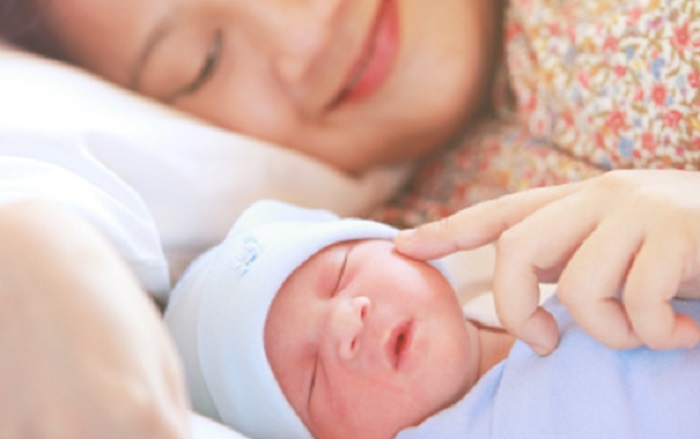
Higher concentrations of maternal stress hormones, depressive symptoms and general adversities during pregnancy led to more resilience in child.
Maternal stress and depression during pregnancy may activate certain protective mechanisms in babies, which could help them develop more resilience to cope with future challenges and adversities, researchers have found.
Researchers from University of Basel in Switzerland in collaboration with international colleagues examined 100 mothers and their babies during and after pregnancy. They collected umbilical cord blood from 39 newborns and assessed the stress hormone cortisol in saliva samples of the mothers. In addition, they evaluated stressful life events and mental health of the mothers via questionnaires.

They observed that increased concentrations of maternal stress hormones, depressive symptoms and general adversities during pregnancy were accompanied by epigenetic changes in the child. As a result of these changes the oxytocin receptor gene, which is important for social behaviour and stress adaptations, is activated more easily, researchers said. This mechanism could indicate that in these cases, the babies adapt to develop more resilience to cope with future challenges and adversities, they said.
Whether a gene can be activated or not also depends on methyl groups that attach to the DNA and function as a switch.
Researchers found that children from mothers with increased stress and depressive symptoms show a reduced methylation of the oxytocin receptor gene at birth. This results in the gene becoming more easily activated, which leads to a facilitated production of oxytocin receptors for oxytocin to react with and unfold its effects, researchers said. Oxytocin not only has an important function in mother-child bonding and in induction of labour and lactation, it also influences social behaviour, they said.
Previous studies have shown, that adversities during pregnancy can increase the risk for mental disorders and physical diseases in the mother’s offspring, researchers said. However, science has so far dedicated much less attention to potential protective mechanisms of the child, they said. “The observations made provide first evidence that an adverse environment during pregnancy could also activate protective mechanisms,” said Gunther Meinlschmidt from University of Basel.
“We need a comprehensive understanding of the psychological processes that allow humans to sustain long-term health even over generations despite adversities,” said Meinlschmidt.
Based on this knowledge, resilience processes could be promoted in order to try preventing the development of mental disorders and physical illnesses, researchers said. The findings were published in the journal Social Cognitive and Affective Neuroscience.